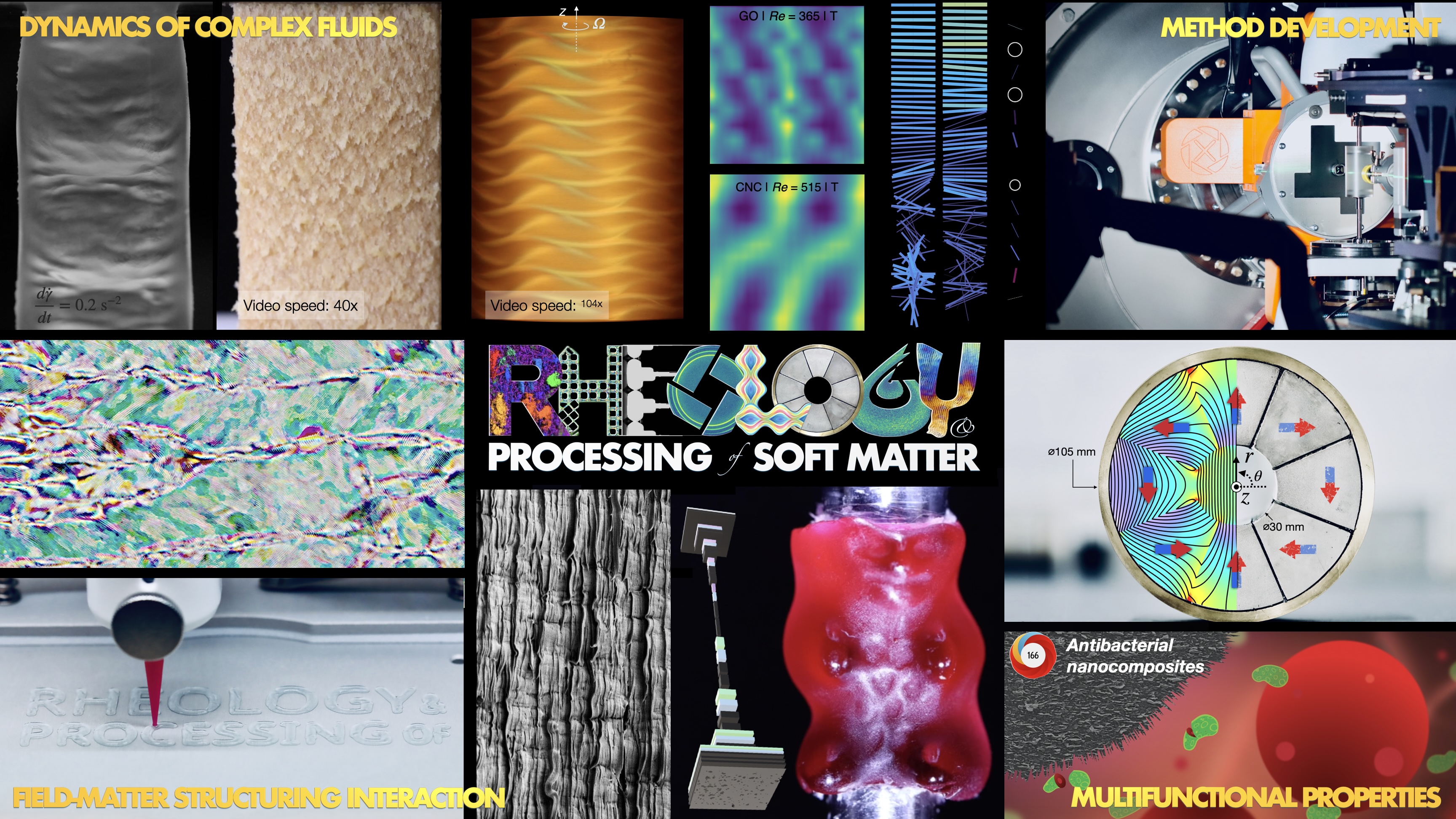Highlights
-
Introducing Our Visiting Researcher: Felix Ellwanger
2 July 2024 | Felix Ellwanger from Karlsruhe Institute of Technology, Germany is exploring the flow behavior of protein-water mixtures in meat substitutes during his research stay at Chalmers.
-
Introducing Our Visiting Researcher: Matheus Mendes
2 July 2024 | Matheus Mendes from Federal University of ABC (UFABC), Brazil is advancing the development of conductive plastics for lightning strike protection in airplanes during his year-long research stay at Chalmers.
-
Exciting News: Our Lab Expansion is Complete!
1 July 2024 | Our lab has grown bigger to help us enhance our research capabilities.
-
New processing equipment in our group courtesy of Wellspect Healthcare
1 February 2024 | Investiment in research and education by Wellspect Healthcare
For more Highlights click Here
Research overview
Rheology is unique among analytical techniques in materials science because it can probe material structure in ‘out-of-equilibrium’ states, i.e. flow induced. This takes rheology as analytical technique towards processing through flow and morphological control therewith. The processing of soft matter into products typically involves rheologically complex fluids in complex flow configurations. Thus, understanding field-matter interactions in relation to fundamental rheological properties is essential for obtaining products with favorable performance through processing.
Four pillars
Our research is based around four closely-relate main pillars: (i) complex fluid flows, (ii) field-matter interaction in nanostructured fluids, (iii) multifunctional properties in soft matter systems and (iv) advanced rheometry.

- Advanced characterization methods, method development - hyphenated rheological techniques: rheo-SAXS, rheo-DES focused on nonlinear material characterization and , e.g. rheo-optics, rheo-SAXS, rheo-DES mainly applied to nanocellulose and graphene suspensions, polymer nanocomposites, hydrogels, adhesives and biomaterials (biofilms, tissues).
- Field-matter interactions for mateiral sctructuring* - focused on the process structuring of ~polymer nanocomposites based on graphene and other high aspect ratio fillers for enhanced antibacterial, electrical, thermal, mechanical, gas-barrier etc. properties.
- Dynamics of complex fluids for processing applications - focused on modeling (CFD), processing flow and compositional optimization of high filler content bicomposites, flow-assisted structuring of nanocrystalline cellulose dispersions and thixotropic yield stress fluids in general.
In other words
The common theme throught our research is that all what we do is generally centered around scientific and industrial challenges where rheology is one of the key aspects. Otherwise, our focus activities are relatively broad:
Engineering: Method develpment, multifunctional properties, flow dynamics and pattern formation, nanotechnology, polymer technology, porcessing component design, polymer and solution processing, coating
Characterization: shear and extensional rheometry, inline rheometry, microscopy (optical,SEM,TEM), thermo-mechanical properties, dielectric spectroscopy. We specialize on hyphenated rheological techniques, such as rheology combined with small-angle X-ray scattering (rheo-SAXS), with polarized light imaging (PLI or SIPLI), dielectric spectroscopy (DES)
Materials: graphene, nanocellulose, polymer solutions and melts, nanocomposites, biocomposites, adhesives, suspensions, gels, hydrogels
Processing: extrusion, bioprinting, 3D-printing (polymers), coating, magnetic fields
Apllications: antibacterial materials, thermo-electric properties, processability, multifunctional materials
